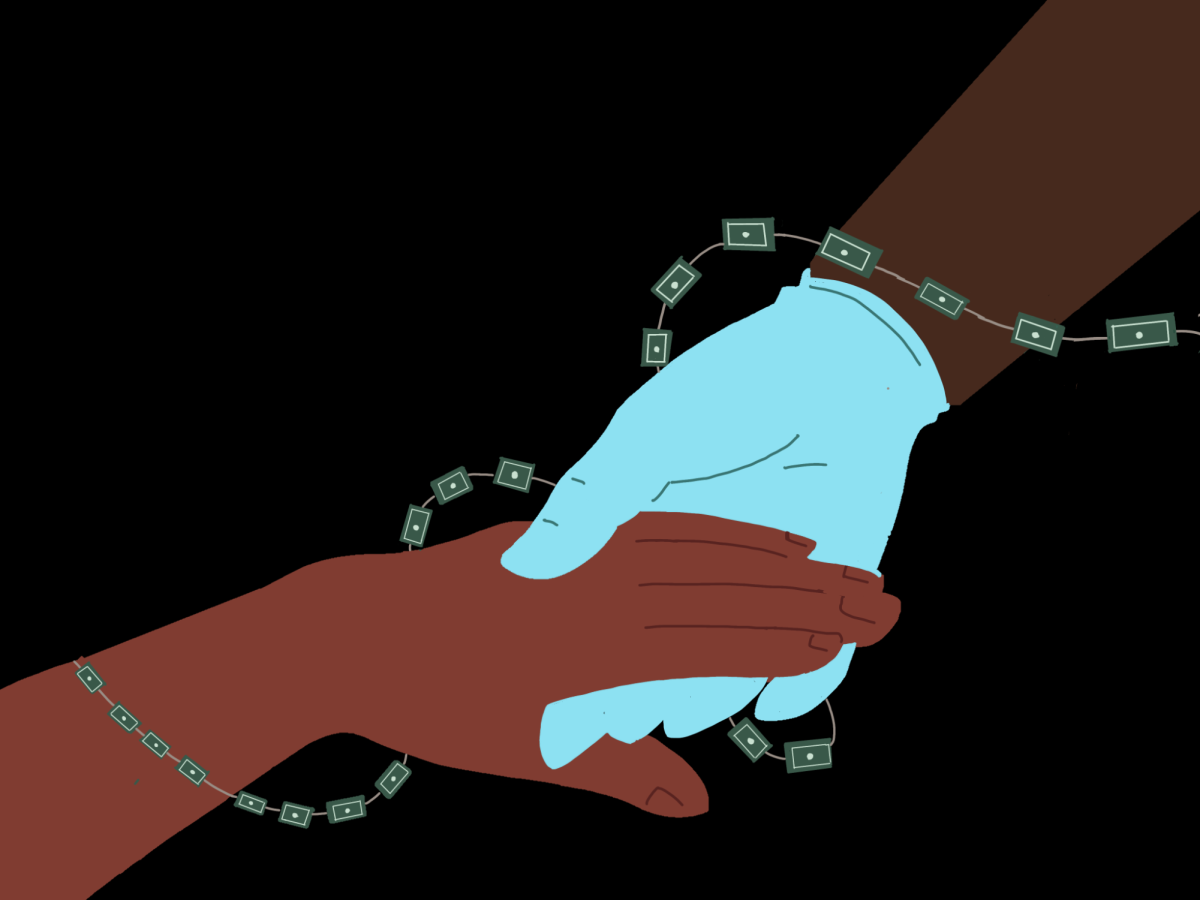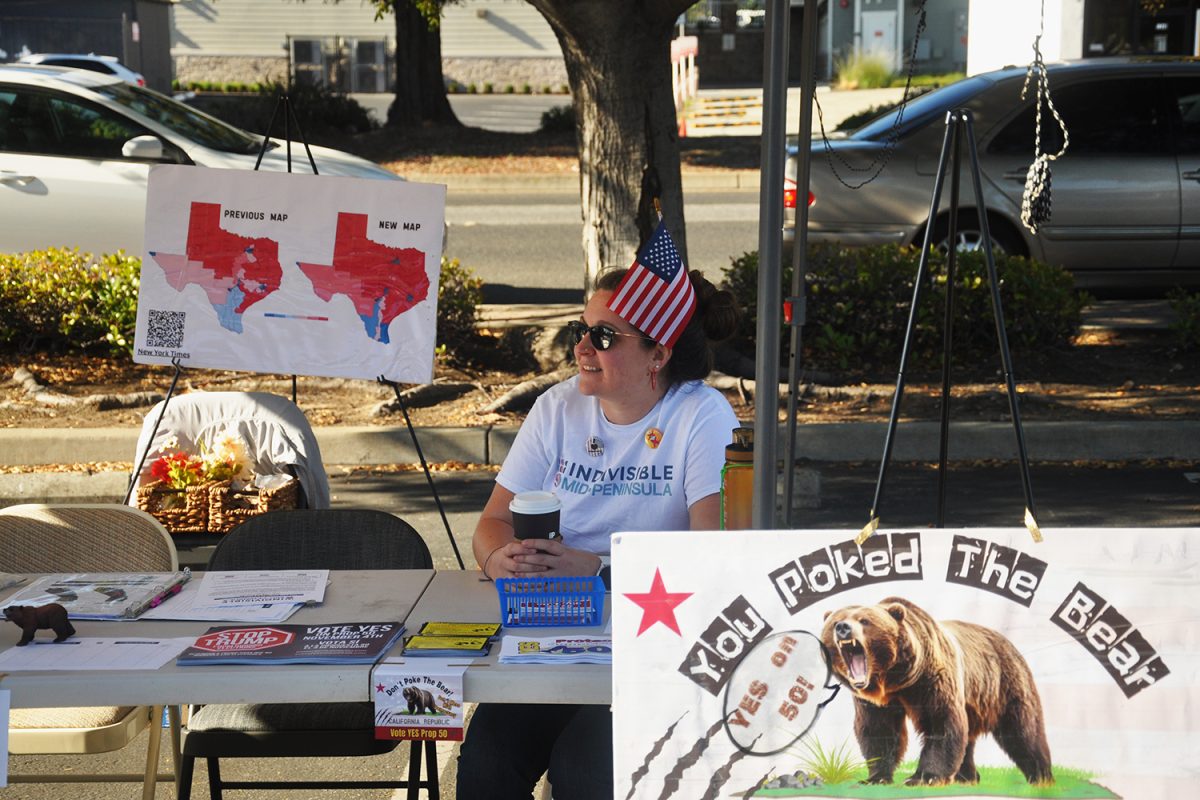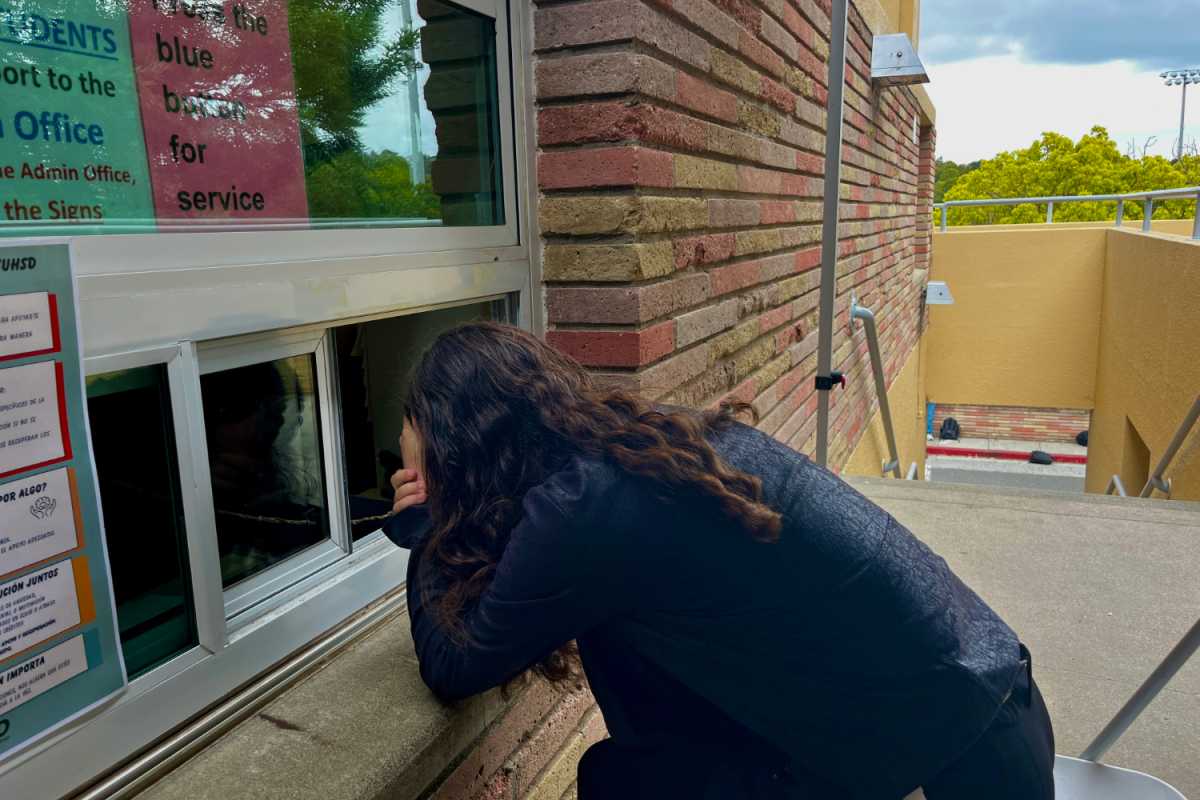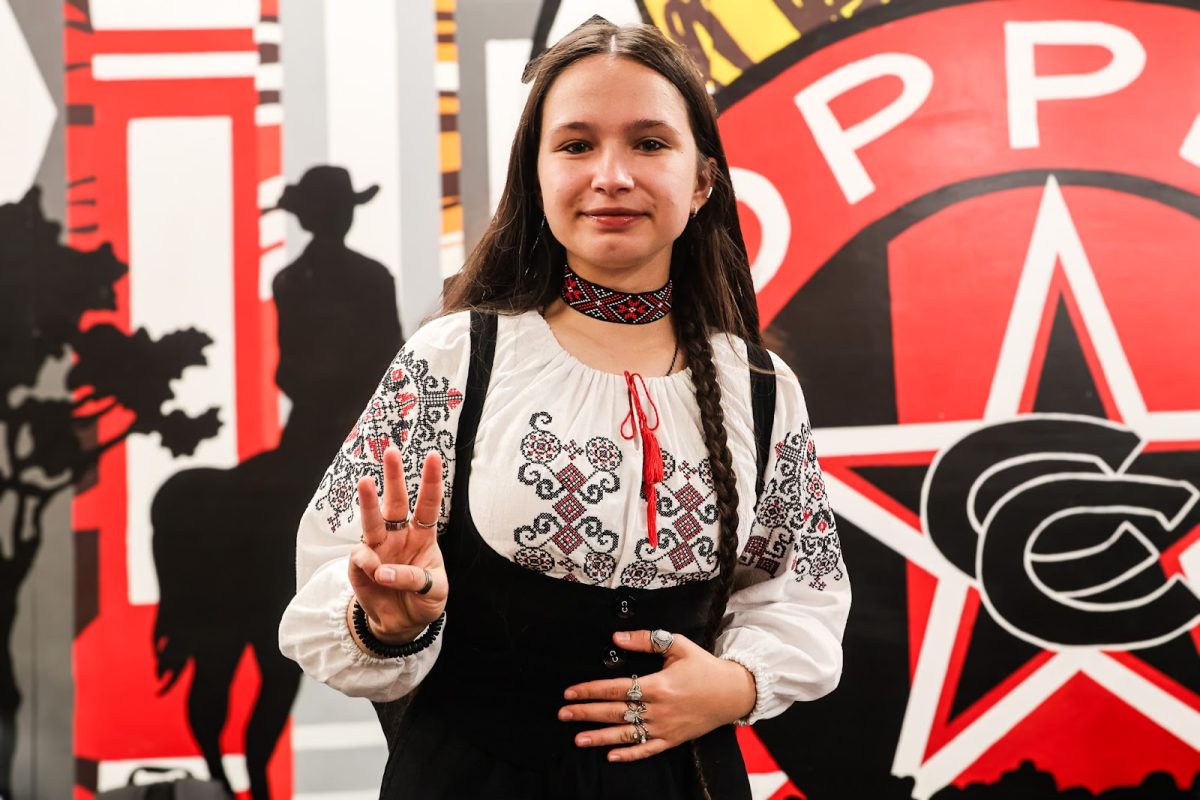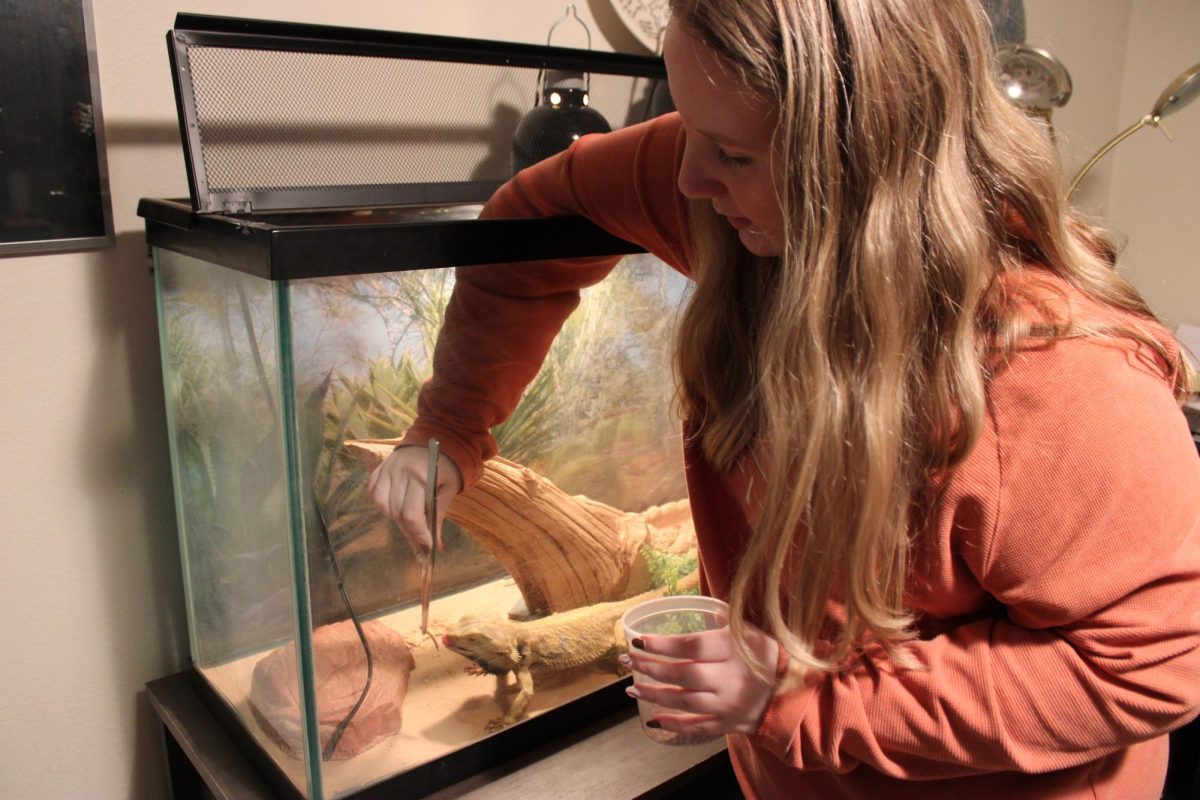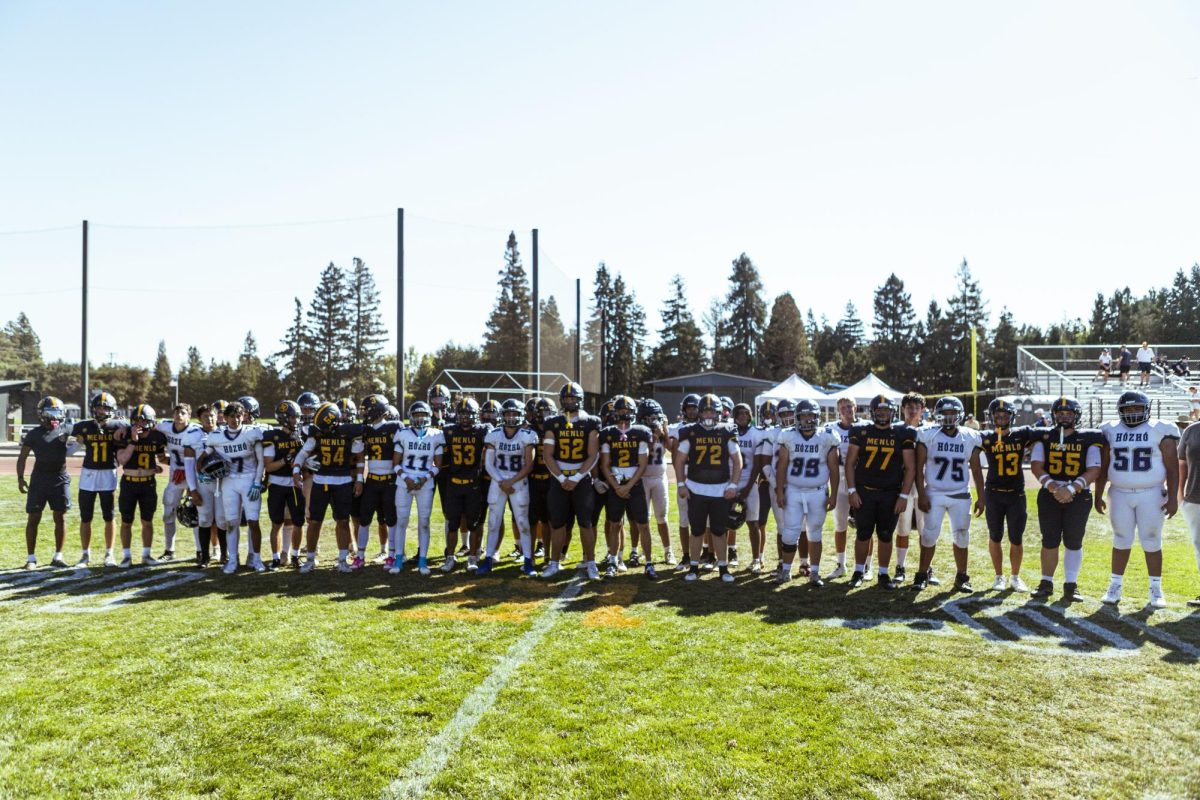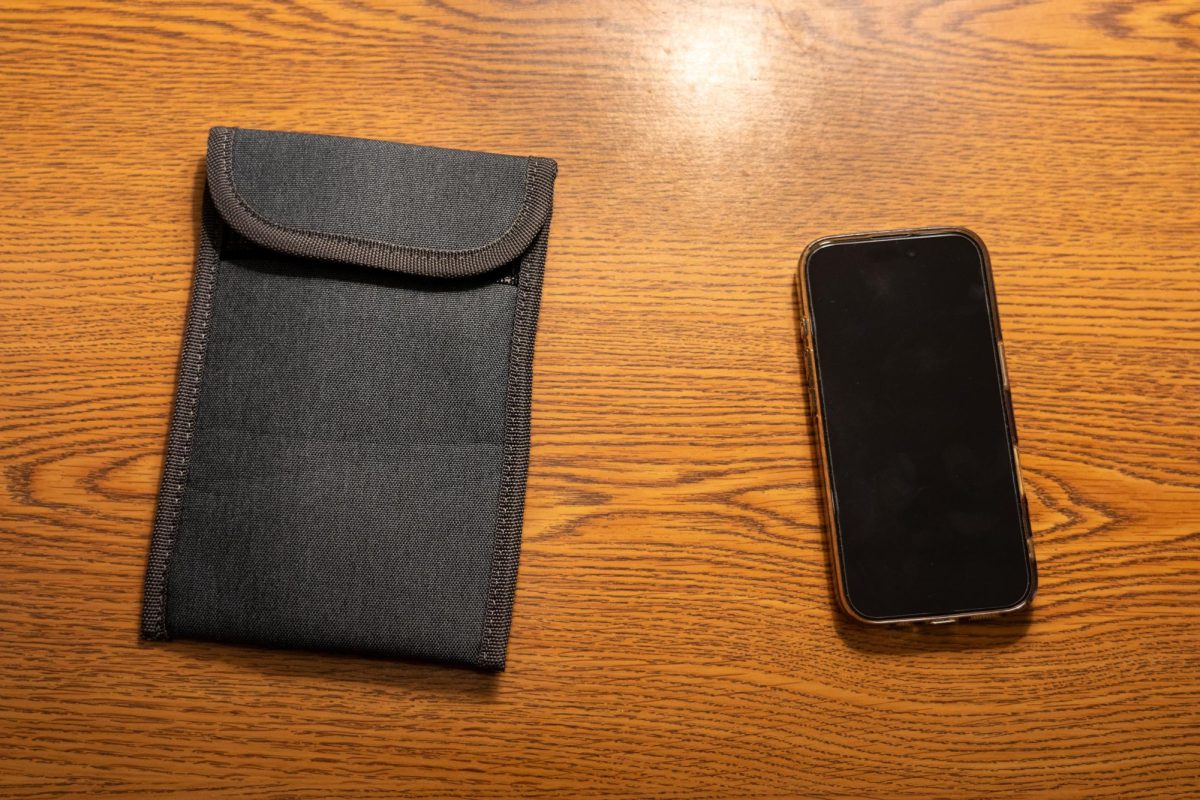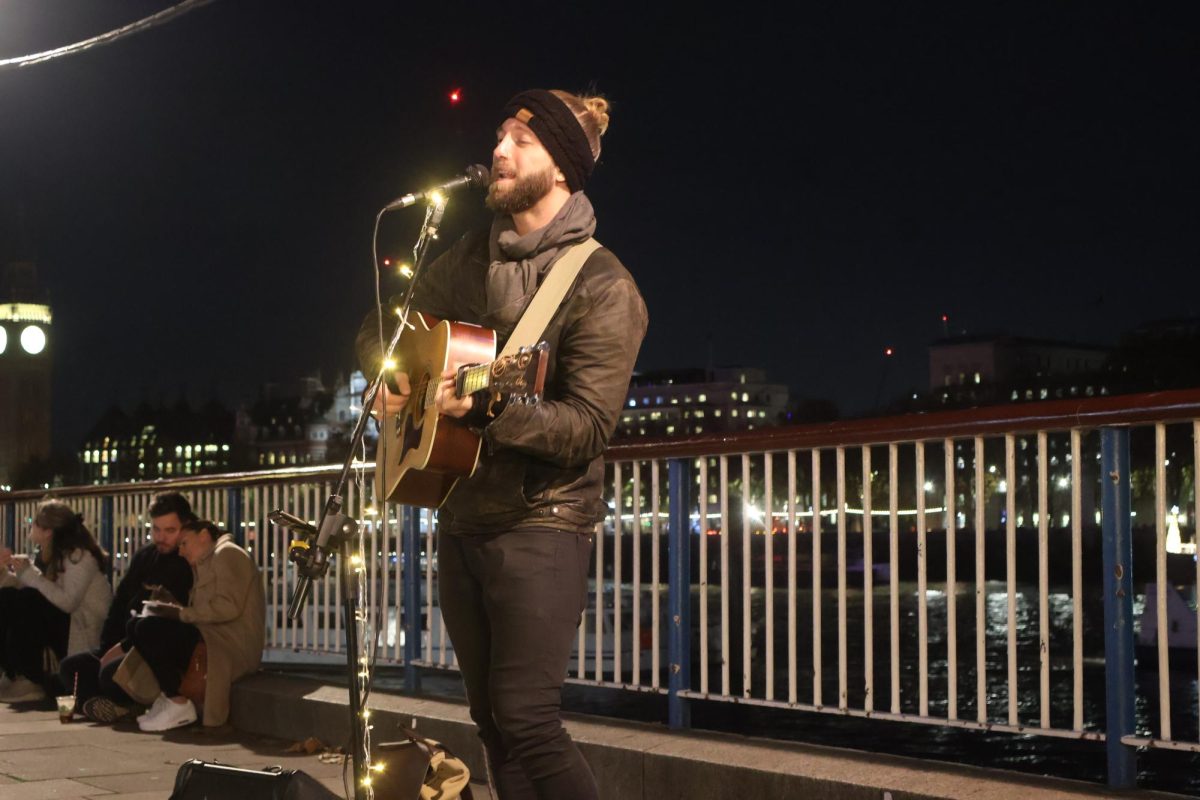After traveling around Europe to perform his music, Brad Jameston settled in London where he plays guitar for passersby.
The singer-songwriter said he has “fallen in love with busking” thanks to the flexibility it grants him with his music genre choice and setlist.
“When you are working in a bar, you’re kind of just there to keep everybody drinking,” he said. “I enjoy that, playing an upbeat song and making people have a dance and what have you. But, when I’m busking, it’s just got a different vibe where I can just really dive deep into some emotion.”
Jameston said the reaction his music elicits from his audience is powerful for healing both himself and members of the public.
“It helps me in that way, but it also helps passersby as well,” he said. “The amount of times I’ve seen someone really process grief or a breakup, or something like that, and they’re in tears.”
Jameston said he does not shy away from the emotional responses he receives; instead, he chooses to intervene.
“I have to just take my guitar off and say, ‘Excuse me ladies and gentlemen, but I’m having a technical difficulty,’” he said. “Then I can go over and give them a big hug. I feel so connected in that moment, and that really is beautiful.”
Jameston’s opportunities to connect with his audience while performing extend beyond the South Bank. Though auditions are held by the Southbank Center for entertainers to gain a license to play, Jameston said the atmosphere is not competitive.
“We have a very lovely community down here, actually,” he said. “We’re all very in support of each other.”
Buskers even go as far as to work with each other on recorded music, combining their talents in the studio. For one of Jameston’s most recent singles, “Dance In Your Fire,” he said he sought the contribution of a violist.
“We just went to go have a jam for Instagram, but she played this viola part and I was like, ‘Oh my God, that’s got to be on the record,’” he said.
Though Jameston has enjoyed the professional environment of the South Bank, his career in music has given him the opportunity to explore other areas of Europe in a variety of music sectors.
“I’ve always traveled around, doing little bits of busking, but also having jobs in hotels and restaurants and that kind of thing,” he said.
After living in Ibiza for 10 years, Jameston said he felt his music had become too much about the performance aspect, and he “was putting too much energy into the entertainer” rather than the artist.
“I had some soul searching to realize you’ve got to shift where the energy is,” he said. “That’s when I decided to come to London and start busking and start releasing my music, finally, after all these years of just writing them and keeping them to myself.”
Beyond performing experience, Jameston said he brought another souvenir from his travel across Europe: his dog, Buddy.
“We met on a campervan trip, and I kept on meeting all these dogs,” he said. “I was like, I can’t have a dog. I can hardly look after myself, never mind a dog.”
Upon meeting Buddy, Jameston said he promptly changed his mind.
“I met him, and I took him straight to the vet,” he said. “He didn’t have a collar or a chip, so we got him cleaned up, and then he’s been on the road with me ever since.”
Moreover, Jameston said Buddy offers more than just companionship. His howling has been an accompaniment to Jameston’s music since they met.
“When I first found him, I had some work in a … really small town,” he said. “He was just the quietest dog and everyone was like ‘We never hear him,’” he said. “One day I sang a note, and he just started howling. Everyone in the bar stopped and was like, ‘Is that Buddy making a noise?’”
Since his first performance, Jameston said Buddy has continued to howl along to Jameston’s music.
“He’s got his favorite songs, but there’s something about a big emotional note,” he said.
Besides Buddy, Jameston said he also receives support from his father who makes frequent visits to his performances.
“My dad’s a big music fan,” he said. “I can tell that my music makes him happy when I’m making progress. That’s really kind, to have that supporting figure in my life.”
Jameston said his father and his school teachers have shown enthusiasm for his career since his earliest pursuits in music.
“I wrote my first song when I was 10 years old,” he said. “My school teacher found it in my little work drawer, she came over to me and was like, ‘Did you write this?’ I thought I was in trouble, and she took me out to the corridor and she started crying. She said ‘It’s beautiful.’”
From there, Jameston said his teacher called his father and showed him the song.
“[My father] said ‘Right, we’ve got to get you a guitar for Christmas,’” he said. “So then I started writing music, as well as lyrics and melody and then I’ve been a musician ever since.”
Jameston said his parents primarily molded his music taste as a child, implementing influences of his father’s favorite piano ballads of David Gray and the soft rock of Travis. He said the songs from his childhood still play a role in his life today, as he still chooses to listen to them.
“David Gray is still one of my favorite albums,” he said. “I still listen to Travis. It reminds me of trips down the forest with my dad and the car driving through the countryside.”
Despite support from his family, Jameston said negativity is an inevitable part of music performance. Nevertheless, he said he’s found peace when facing any backlash.
“It’s just part and parcel with it,” he said. “There’s an element to rejection that, with anything in life, you’ve got to keep moving forward through.”
This story was originally published on The Standard on March 18, 2024.

